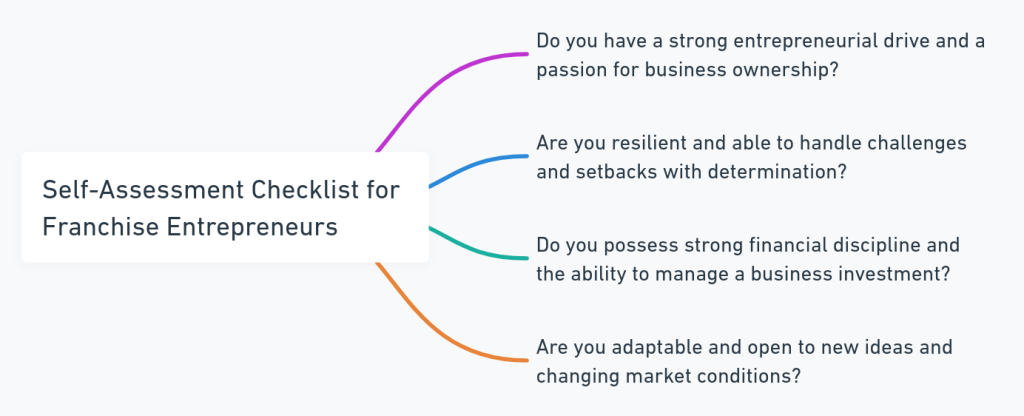Entrepreneurs who want to open a franchise read this: A Step-by-Step Guide to Success

Dreaming of owning your own business but are intimidated by the risks and challenges involved? Consider franchising, a proven path to entrepreneurial success that offers reduced risk, access to a proven business model, and the support of a reputable brand. This route is especially appealing for entrepreneurs who want to open a franchise, as it provides a structured foundation for business ownership.
If you’re among the entrepreneurs who want to open a franchise, with a passion for a particular industry or product, franchising allows you to leverage the expertise and experience of a successful franchisor while bringing your unique talents and perspectives to the table. You’ll benefit from brand recognition, standardized operational procedures, and ongoing training and support.
Imagine the satisfaction of being your boss, building a thriving business, and achieving financial independence. For entrepreneurs who want to open a franchise, this path can provide you with the flexibility to manage your time and life while contributing to a growing brand.
Embark on your entrepreneurial journey by following this step-by-step guide to franchising success. Self-assess your suitability for franchising, conduct thorough research, conduct due diligence, understand the financial implications, select an appropriate location, embrace franchisor guidance, master management principles, navigate legal and compliance, and pursue ongoing growth and expansion. With dedication and strategic planning, entrepreneurs who want to open a franchise can turn their entrepreneurial dreams into reality through the power of franchising.
Content Overview:
Self-Assessment: Are You Cut Out to Be a Franchisee?
Before embarking on the exciting journey of owning a franchise, it’s crucial for entrepreneurs who want to open a franchise to conduct an honest self-assessment. This assessment helps determine if they possess the essential qualities and characteristics of a successful franchisee.
Entrepreneurial Spirit
At the heart of franchising lies the entrepreneurial spirit, particularly vital for entrepreneurs who want to open a franchise. This spirit involves the drive to take charge, seize opportunities, and navigate the challenges of business ownership. Successful franchisees possess a natural entrepreneurial mindset, characterized by self-motivation, initiative, and a passion for innovation. They thrive on the satisfaction of building a successful business from the ground up.
Resilience
Owning a franchise is not without its hurdles and setbacks, making resilience a critical trait for entrepreneurs who want to open a franchise. Successful franchisees demonstrate the ability to bounce back from challenges, learn from mistakes, and persevere in the face of adversity. They possess a strong mental fortitude and unwavering determination to overcome obstacles and achieve their goals.
Financial Stability
Franchising requires a significant financial investment, especially important for entrepreneurs who want to open a franchise. This includes initial franchise fees, ongoing royalties, and potential startup costs. Successful franchisees demonstrate strong financial discipline and the ability to manage their finances effectively. They understand the financial implications of owning a franchise and have the financial resources to support their investment.
Adaptability
The business landscape is constantly evolving, and successful franchisees, particularly those new entrepreneurs eager to open a franchise, embrace adaptability. This quality is the ability to adjust to changing market conditions, consumer preferences, and industry trends. They are open to new ideas, and willing to learn and adapt their strategies to maintain a competitive edge.
Self-Assessment Checklist
For entrepreneurs who want to open a franchise, consider these questions:
- Do you have a strong entrepreneurial drive and a passion for business ownership?
- Are you resilient and able to handle challenges and setbacks with determination?
- Do you possess strong financial discipline and the ability to manage a business investment?
- Are you adaptable and open to new ideas and changing market conditions?

Aligning Personal Values and Interests with the Franchise Concept
Beyond the essential qualities and characteristics, it’s equally important for entrepreneurs who want to open a franchise to align their personal values and interests with their chosen franchise concept.
- Passion for the Industry: Are you genuinely passionate about the industry or product offered by the franchise? Passion fuels dedication and drives you to succeed.
- Alignment with Values: Do the franchise’s values and mission align with your own personal values? Shared values foster a sense of purpose and motivation.
- Industry Knowledge: Do you have any prior experience or knowledge of the industry? Familiarity with the industry can provide a competitive advantage.
- Interest in the Franchise Concept: Do you have a genuine interest in the specific franchise concept? Active interest fuels your willingness to learn, grow, and contribute to the success of the brand.
By evaluating your suitability for franchising, conducting thorough research, and aligning your personal values and interests with the franchise concept, you can increase your chances of achieving success as a franchisee.
Research and Discovery: Unveiling the Right Franchise Opportunity for Entrepreneurs
The journey toward becoming a successful franchisee begins with a thorough research phase, crucial for entrepreneurs who want to open a franchise. Aspiring entrepreneurs embark on a quest to uncover the perfect franchise opportunity that aligns with their interests, skills, and financial goals.
Exploring Franchise Directories and Showcases
The digital age has democratized the process of franchise discovery, opening up a vast network of resources for entrepreneurs seeking their ideal franchise match. Online directories like franchising.com and Entrepreneur.com provide comprehensive listings of franchise opportunities across various industries, allowing entrepreneurs to filter their search based on preferences. Additionally, franchise showcases, such as the International Franchise Expo and the Franchise 500, offer an immersive experience where entrepreneurs can interact directly with franchisors, network with potential franchisees, and gather valuable insights.
Delve into Industry Publications and Reports
For entrepreneurs who want to open a franchise, staying abreast of industry trends and market dynamics is crucial for making informed decisions. Subscribing to industry publications like Franchise Times and Nation’s Restaurant News helps gain insights into emerging trends, consumer preferences, and potential opportunities. Additionally, consulting industry reports published by reputable organizations assess the overall health and growth potential of specific industries.
Evaluating Franchise Concepts Based on Key Criteria
As entrepreneurs delve into the world of franchise opportunities, it’s essential to evaluate each concept based on a set of critical criteria. These factors include:
- Industry Trends: Assess the overall trajectory of the industry, evaluating its growth potential, stability, and resistance to economic fluctuations.
- Target Market: Identify the target market for the franchise concept, ensuring it aligns with the entrepreneur’s passion, experience, and understanding of customer needs and preferences.
- Financial Performance: Scrutinize the franchise’s financial performance metrics, including historical revenue, profit margins, and return on investment. Verify the accuracy and reliability of these figures.
- Franchisor Reputation: Research the franchisor’s reputation for providing support, training, and ongoing guidance to franchisees. Assess their track record of success and customer satisfaction.
- Cultural Fit: Evaluate the level of alignment between the entrepreneur’s personal values and the franchisor’s culture, mission, and values. A strong cultural fit can foster motivation, dedication, and long-term success.
Entrepreneurs who want to open a franchise should embark on their research journey with an open mind, a willingness to learn, and a passion for the entrepreneurial spirit. By diligently evaluating potential franchise opportunities and aligning their interests with the right concept, they can increase their chances of achieving success and building a thriving franchise business.
Legal requirements for franchising
Franchising is a business strategy that involves a franchisor providing a licensed privilege to the franchisee to do business and offer services or products under the franchisor’s brand name.
The legal requirements for franchising can vary significantly from one country to another, but some common aspects are generally applicable in many jurisdictions. Here’s an overview of the key legal requirements often involved in franchising:
- Franchise Disclosure Document (FDD): In countries like the United States, franchisors are required to provide potential franchisees with an FDD at least 14 days before any agreement is signed or any payment is made. The FDD contains extensive information about the franchisor, the franchise system, the franchise agreement, and the financial statements of the franchisor.
- Registration: Some jurisdictions require franchisors to register their FDD with a government body before they can offer franchises in that area. This is to ensure that all the necessary information has been disclosed to potential franchisees.
- Trademark Registration: A franchisor must own or have rights to the trademark or brand under which the franchise operates. Proper registration and protection of trademarks are crucial to prevent infringement and ensure the brand’s integrity.
- Franchise Agreement: This is a legal document that outlines the terms and conditions of the franchise relationship between the franchisor and the franchisee. It includes details on fees, training and support, territory, duration of the franchise, renewal terms, and conditions for termination of the franchise.
- Compliance with Local Laws: Both franchisors and franchisees must comply with local business operation laws, including zoning laws, health and safety regulations, employment laws, and any specific regulations that apply to the business sector of the franchise.
- Financial Disclosure: Franchisors may be required to provide evidence of their financial stability and disclose any significant financial risks to potential franchisees.
- Intellectual Property: The franchisor must ensure that all intellectual property rights are secured and that the franchisee is granted the rights to use these by the franchise agreement.
- Consumer Protection Laws: Both franchisors and franchisees must comply with consumer protection laws in the jurisdiction where the franchise operates. This includes fair advertising practices and compliance with product and service standards.
- Data Protection Laws: With the increasing importance of data privacy, franchisors and franchisees must ensure compliance with data protection laws, especially when handling customer information.
- International Franchising: For international franchising, additional legal requirements may include compliance with the laws of both the home country of the franchisor and the host country of the franchisee, as well as understanding and negotiating the impacts of international treaties and agreements.
Before entering into a franchise agreement, both franchisors and franchisees must seek legal advice to ensure compliance with all applicable laws and regulations. Legal requirements can be complex and vary significantly, so professional guidance is essential to navigate the legal landscape of franchising successfully.
Creating a comprehensive financial plan for franchising
Creating a comprehensive financial plan for franchising is essential for both franchisors and franchisees. It helps in assessing the viability of the franchise, planning for the future, and securing financing. Here’s a step-by-step guide to creating a financial plan for franchising:
For Franchisors
1. Initial Franchise Fee and Other Fees Analysis:
Determine the initial franchise fee, ongoing royalty fees, marketing fees, and any other charges. These fees should cover the costs of support services provided and ensure a profit margin for the franchisor.
2. Franchise Development Costs:
Calculate the costs associated with developing the franchise system, including legal fees for drafting the Franchise Disclosure Document (FDD), trademark registration, and marketing costs for attracting franchisees.
3. Franchisor Support and Training Programs:
Estimate the costs of providing initial and ongoing support and training to franchisees. This includes the development of training materials, operational manuals, and staffing costs for support teams.
4. Marketing and Brand Development:
Budget for national marketing campaigns and brand development activities that benefit all franchisees. This could also include online marketing, PR, and brand awareness campaigns.
5. Financial Performance of Corporate Units:
If applicable, include the financial performance of corporate-owned units as a benchmark for potential franchisees, covering revenue, expenses, and net profit margins.
6. Capital Requirements and Financing Options:
Determine the capital requirements for expanding the franchise and explore financing options for franchisors and franchisees. This could include loans, equity financing, or other financial instruments.
For Franchisees:
1. Initial Investment:
Calculate the total initial investment required, including the franchise fee, equipment costs, leasehold improvements, inventory, and any other startup costs.
2. Operating Expenses:
Estimate ongoing operating expenses such as rent, utilities, payroll, supplies, insurance, and marketing. Include a provision for the ongoing royalty and marketing fees payable to the franchisor.
3. Revenue Projections:
Develop revenue projections based on the franchisor’s data, market research, and location analysis. Consider factors like customer demand, competitive landscape, and pricing strategy.
4. Cash Flow Analysis:
Prepare a cash flow statement to project how cash is expected to flow in and out of the business. This should include all sources of income and all expenses. The aim is to identify periods of cash surplus and shortfall to ensure that there is adequate working capital and liquidity.
5. Break-even Analysis:
Conduct a break-even analysis to determine when the franchise is expected to become profitable. This involves calculating the point at which total revenue equals total costs and expenses, indicating no net loss or gain.
6. Profit and Loss Statement (Forecast):
Prepare a profit and loss forecast for at least the first three to five years. This should detail expected revenue, cost of goods sold, gross profit, operating expenses, and net profit before and after taxes.
7. Balance Sheet (Forecast):
Project the balance sheet for the business, showing assets, liabilities, and equity over time. This helps in understanding the expected financial position of the franchise at various points in the future.
8. Funding Requirements and Sources:
Clearly outline the total funding requirements to start and operate the franchise until it becomes cash flow positive. Identify potential sources of funding, such as personal savings, loans, or investors.
9. Sensitivity Analysis:
Perform a sensitivity analysis to understand how changes in key assumptions (e.g., sales volume, costs, market conditions) will impact the financial performance of the franchise. This helps in assessing the risk and potential financial impact of unexpected changes.
10. Exit Strategy:
Consider and outline potential exit strategies. This could include selling the franchise, passing it on to a family member, or closing the business. Understanding the exit options and their financial implications is important for long-term planning.
General Tips for Both Franchisors and Franchisees:
- Professional Advice: Seek advice from financial advisors, accountants, and lawyers who specialize in franchising to ensure that your financial plan is realistic and comprehensive.
- Regulatory Compliance: Ensure that your financial plan adheres to any regulatory requirements and standards in your jurisdiction, especially in terms of financial reporting and disclosures.
- Franchisor-Franchisee Communication: Open and transparent communication between franchisors and franchisees is crucial. Franchisors should provide as much data and support as possible to help franchisees develop accurate financial plans.
- Continuous Review and Update: A financial plan is not a static document. It should be reviewed regularly and updated based on actual performance, changes in the market, and other relevant factors.
Creating a comprehensive financial plan requires careful consideration of numerous factors and a deep understanding of both the franchise system and the market. By following these steps and focusing on detailed planning and analysis, both franchisors and franchisees can set themselves up for success in the franchising business.







Responses